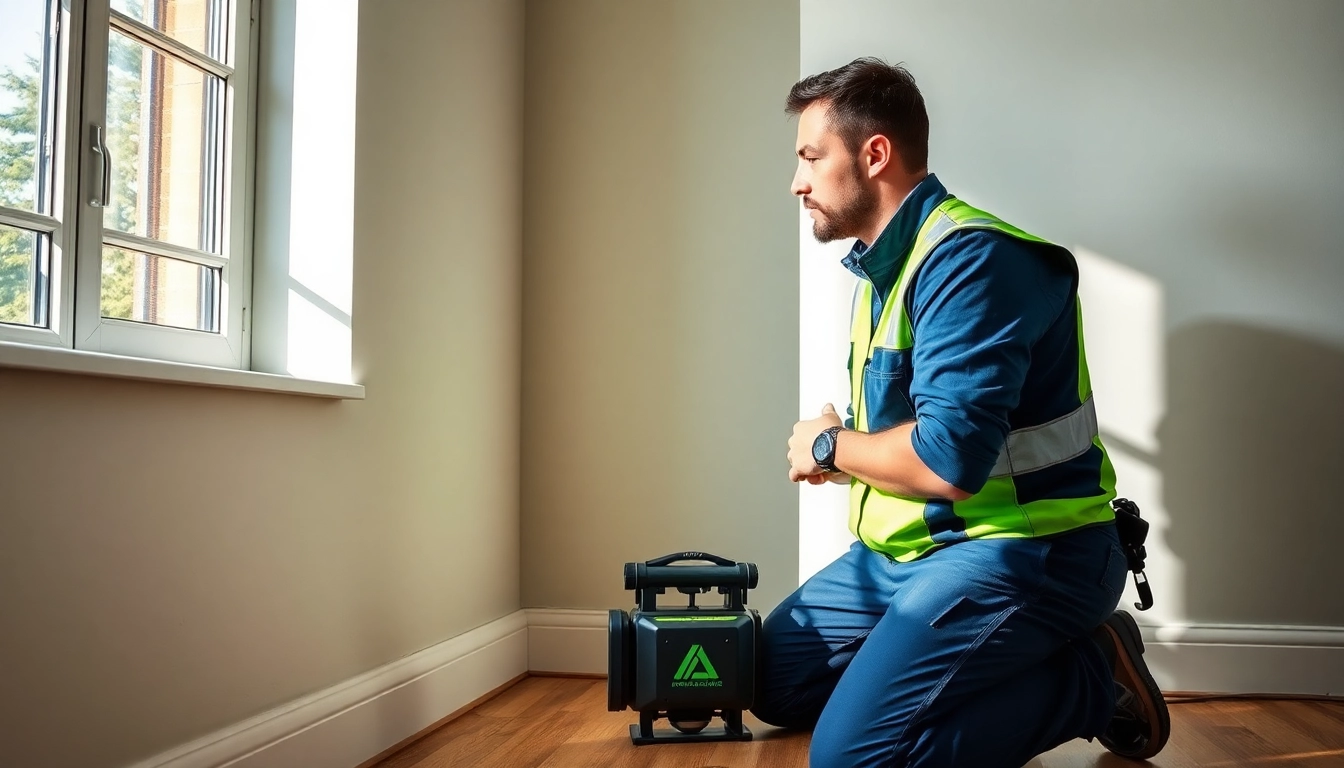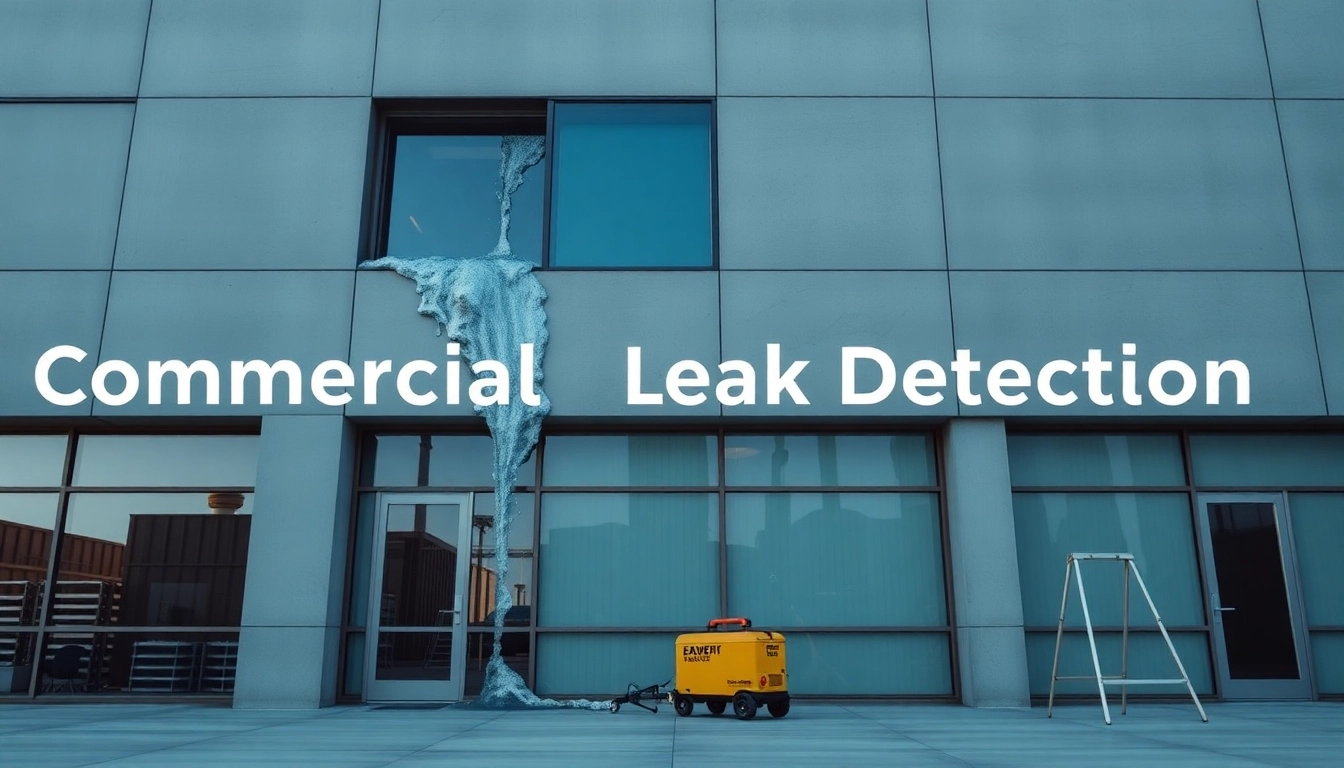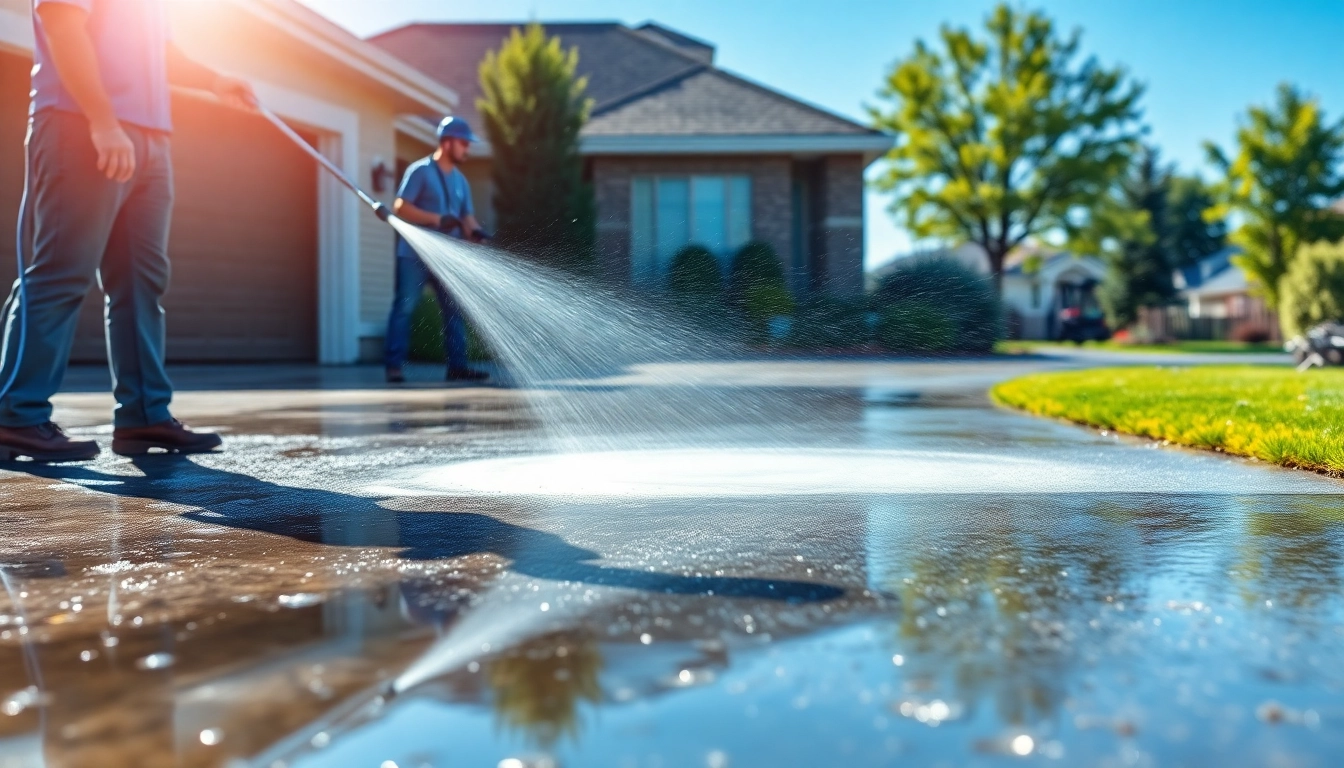Understanding Leak Detection Cornwall: An Overview
When it comes to maintaining your property, understanding the nuances of Leak Detection Cornwall is crucial. Water leaks can lead to severe structural damage and costly repairs, but early detection can save homeowners both time and money. This article explores the ins and outs of leak detection, ensuring property owners are equipped with the knowledge to tackle any potential leaks that may arise.
What Is Leak Detection?
Leak detection refers to the process of locating and identifying water leaks in various environments, including residential, commercial, and industrial settings. This involves employing advanced technologies and methodologies to pinpoint the exact location of a leak, minimizing property damage and aiding in prompt repairs. In Cornwall, a region characterized by its unique properties and climatic conditions, effective leak detection is essential for safeguarding homes against the adverse effects of water damage.
Importance of Early Leak Detection in Cornwall
Early detection of leaks is pivotal in preventing extensive damage and financial loss. Water leaks can lead to a multitude of issues, including mold growth, structural weakening, and increased utility bills. In Cornwall, where properties might be older and plumbing systems may require more attention, addressing leaks promptly can contribute to the longevity of these structures. Moreover, with the region’s wet climate, the risk of leaks causing damage is heightened, making proficient leak detection even more critical.
Common Causes of Water Leaks
Understanding the common causes of water leaks can empower homeowners to take preventative measures. Some frequent culprits of leaks in Cornwall include:
- Ageing Plumbing: Older pipes are more susceptible to corrosion and wear, increasing the likelihood of leaks.
- Extreme Weather Conditions: Heavy rainfall and temperature fluctuations can place additional stress on plumbing systems.
- Improper Installation: Poorly installed appliances and fixtures can lead to water leaks.
- Tree Roots: Invasive tree roots can infiltrate and damage underground pipes.
Key Techniques for Effective Leak Detection Cornwall
Acoustic Leak Detection Methods
One of the most prevalent methods used for leak detection is acoustic detection. This technique operates on the principle of sound; when water escapes from pipes, it produces specific sounds that trained technicians can listen for using sensitive microphones. Acoustic leak detection is particularly useful in urban settings like Cornwall, where underground pipes may be buried beneath various structures.
Infrared Thermography in Leak Detection
Infrared thermography is another advanced technique used in leak detection. This method involves using thermal imaging cameras to detect changes in temperature that indicate a leak. Water leaks often cause temperature variations on surfaces, making infrared technology a beneficial tool for professionals in Cornwall. Unlike other methods, this technique is non-invasive and allows for a thorough inspection without damaging property structures.
Using Moisture Meters for Precise Readings
Moisture meters are invaluable tools in leak detection, providing precise readings of moisture levels in various materials. In Cornwall, where humidity can affect structures, using these meters helps professionals accurately identify areas of concern within properties. They can indicate not only the presence of leaks but also help in assessing damage from previous leaks.
Tools and Technologies for Professionals in Leak Detection Cornwall
Essential Equipment for Leak Detection
Professionals utilize a range of specialized equipment for effective leak detection. Some essential tools include:
- Acoustic Listening Devices: These devices amplify the sounds of leaks, making it easier to pinpoint their location.
- Infrared Cameras: Used for detecting temperature differences associated with moisture intrusion.
- Moisture Meters: Provide accurate measurements of the moisture content in materials.
How Technology Has Advanced Leak Detection
The evolution of technology has significantly improved leak detection capabilities. Today, many companies utilize state-of-the-art equipment incorporating artificial intelligence and machine learning to analyze data more effectively. These advancements mean that leaks can be detected more swiftly and accurately than ever before, benefiting both service providers and homeowners alike in Cornwall.
Comparison of Different Leak Detection Tools
Choosing the right leak detection tool depends on the specific situation and type of leak. For instance, while acoustic devices are excellent for underground pipe leaks, infrared cameras may be better suited for surface-level inspections. Moisture meters offer critical support for confirming the presence of moisture and tracking its movement in a property.
Identifying Signs of Water Leaks in Your Cornwall Property
Common Indicators of Hidden Leaks
Homeowners in Cornwall should be vigilant for signs of hidden leaks. Common indicators include:
- Unexplained Water Bills: A sudden spike in water expenses can signal hidden leaks.
- Water Stains: Discolorations on walls, ceilings, and floors are often red flags.
- Mold Growth: The presence of mold in areas that are usually damp can indicate ongoing moisture problems.
- Sound of Running Water: If no one is using water, the sound may suggest a leak somewhere in the system.
How to Perform Preliminary Leak Inspections
A preliminary inspection for leaks can be carried out by homeowners with a few straightforward steps. Here’s a guide on how to perform such an inspection:
- Check Water Meters: Regularly review your water meter when no water is being used to check for any movement.
- Inspect Areas Around Appliances: Look for any signs of water pooling or dampness near appliances.
- Examine Plumbing Fixtures: Inspect faucets, toilets, and pipe connections for any signs of leaks.
- Monitor Walls and Ceilings: Look for water stains or peeling paint that could be a sign of a leak.
When to Call a Professional for Leak Detection
If you notice any alarming signs or if preliminary inspections raise concerns, it’s crucial to call a professional. They have the tools, knowledge, and experience to identify and address leaks that homeowners may not be equipped to handle. It’s better to seek assistance sooner rather than later to mitigate the risks of further damage.
Preserving Your Property: Best Practices for Leak Prevention in Cornwall
Routine Maintenance Tips to Prevent Leaks
Preventing leaks starts with proactive maintenance. Here are some best practices homeowners in Cornwall can adopt:
- Regularly Inspect Pipes: Conduct periodic inspections of your plumbing system to catch potential issues early.
- Maintain Appliances: Ensure that appliances like washing machines and dishwashers are in good condition and that hoses are not worn.
- Keep Gutters Clean: Clogged gutters can lead to water overflow and potential leaks.
How to Prepare Your Home for Harsh Weather
Preparing for harsh weather conditions, especially during the winter months, is crucial for preventing water damage. Homeowners should:
- Insulate Pipes: Insulating pipes can help prevent freezing and bursting during severe cold.
- Seal Windows and Doors: Ensure that all openings are properly sealed to prevent water ingress.
- Check Roofs and Gutters: Maintaining the roof and clearing gutters can help direct water away from the property.
Importance of Regular Inspections and Repairs
Regular inspections, along with timely repairs of any identified issues, form the backbone of effective leak prevention. Homeowners should prioritize scheduling professional inspections at least yearly to catch any lurking issues. By managing these aspects proactively, residents can preserve the integrity of their properties in Cornwall.



